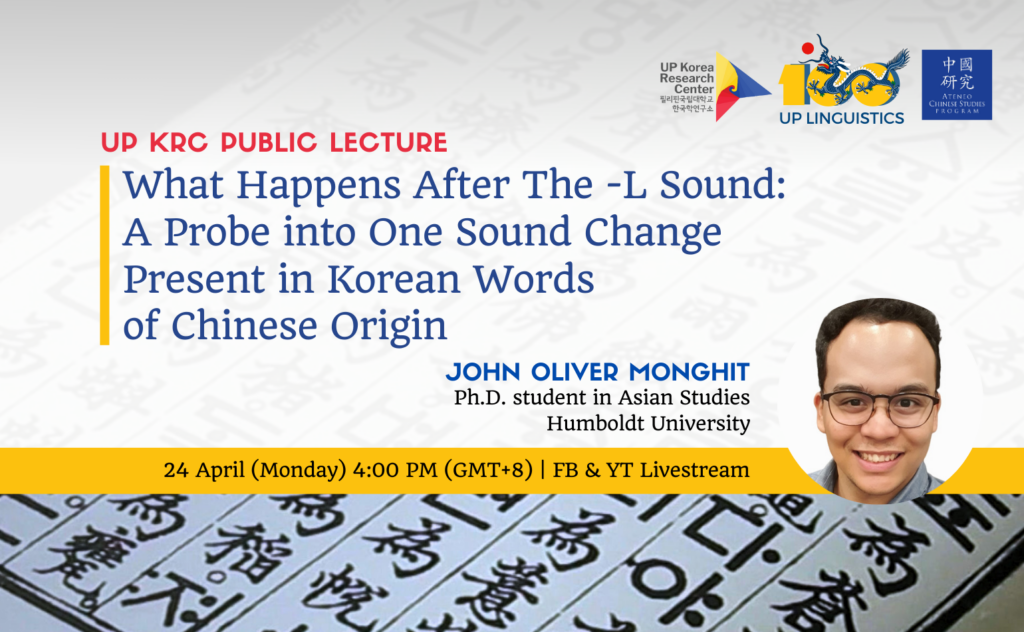UPKRC Public Lecture: What Happens After The -L Sound: A Probe into One Sound Change Present in Korean Words of Chinese Origin
- Date: 24 Apr 2023 | 4:00 PM - 5:30 PM
- Venue: YouTube Livestream
What Happens After The -L Sound: A Probe Into One Sound Change Present In Korean Words of Chinese Origin
DATE: 24 April (Monday) 4:00PM (GMT+8)
Facebook Livestream: https://fb.me/e/12hNA8SsL
YouTube Livestream: https://www.youtube.com/live/Q6_nXhx2OU8?feature=share

DESCRIPTION
One rule in the Korean language states that the consonants ㄷ t, ㅅs, ㅈj change into ㄸ tt, ㅆ ss, ㅉjj after ㄹ l in Korean words of Chinese origin. Some words that manifest this sound change are 갈등 kaltteung ‘conflict’, 불세출 pulssechul ‘extraordinary’, and 물질 muljjil ‘substance’. However, there are exceptions to this rule. Using data from the Standard Korean Language Dictionary, I aim to describe this phenomenon and found out that this sound change is yet to be completed. I also looked into why, how, and when this sound change has possibly occurred. This presentation will pique the interest of teachers, learners, and researchers of the Korean language and anyone who loves language change in general.
ABOUT THE SPEAKER
Oliver Monghit is a Filipino linguist deeply interested in language change, variation, and contact. After his BA in linguistics at UP, he went to Hanyang University as a Korean government scholar to join a Chinese language and literature master’s program. During his time in Seoul, he learned more about how the massive loanwords from Chinese have evolved in the Korean language. From Asia, he moved to Germany and is currently pursuing a Ph.D. in Asian Studies at Humboldt University of Berlin.
This event is co-presented by UP Korea Research Center, UP Department of Linguistics and the Ateneo Chinese Studies Program
